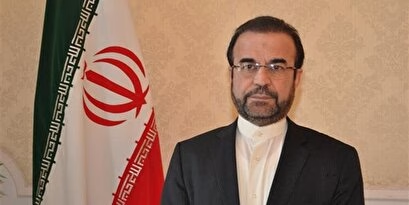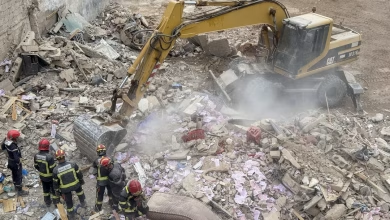IAEA Board Condemns Iran For Nuclear Non-Compliance

- IAEA board adopts resolution condemning Iran’s failure to meet nuclear obligations for the first time in 20 year
- 19 members vote in favor; Russia, China, Burkina Faso oppose; 11 abstain
- Resolution demands Iran’s urgent cooperation on uranium traces at undeclared sites
For the first time in two decades, the International Atomic Energy Agency (IAEA) has passed a resolution formally condemning Iran for failing to meet its nuclear obligations — a move that could potentially lead to the reimposition of United Nations sanctions.
The IAEA’s 35-member board of governors adopted the resolution during a closed-door session on Thursday, with 19 countries voting in favour, Russia, China, and Burkina Faso opposing, 11 abstentions, and 2 members not voting, according to diplomats familiar with the proceedings.
The resolution, introduced by France, the United Kingdom, Germany, and the United States, urges Iran to urgently cooperate with the IAEA’s long-standing investigation into undeclared nuclear sites where uranium traces were discovered. These traces, found at multiple locations Iran has not officially declared, are suspected by Western officials to be linked to a covert nuclear weapons program that may have existed before 2003.
The draft resolution states:
“Iran’s repeated failure since 2019 to provide the Agency with timely and comprehensive cooperation regarding undeclared nuclear material and activities at multiple sites constitutes non-compliance with its Safeguards Agreement.”
Under the Nuclear Non-Proliferation Treaty (NPT), Iran is required to disclose all nuclear material and activities and allow IAEA inspections to ensure its nuclear program is strictly peaceful.
The resolution further expresses concern over the IAEA’s inability to verify the peaceful nature of Iran’s nuclear activities, stating this matter falls under the jurisdiction of the United Nations Security Council, which is responsible for maintaining international peace and security.
Iran has yet to issue an official response, though its government has previously warned of retaliation against such actions.
The vote comes at a tense geopolitical moment. On Wednesday, the U.S. State Department began reducing its non-essential personnel in parts of the Middle East, amid rising regional tensions. Meanwhile, the U.S. and Iran are engaged in indirect talks, with a sixth round of negotiations set to take place in Oman on Sunday, according to that country’s foreign minister.
The resolution also reaffirms the IAEA’s support for a diplomatic solution, referencing the ongoing U.S.-Iran dialogue:






